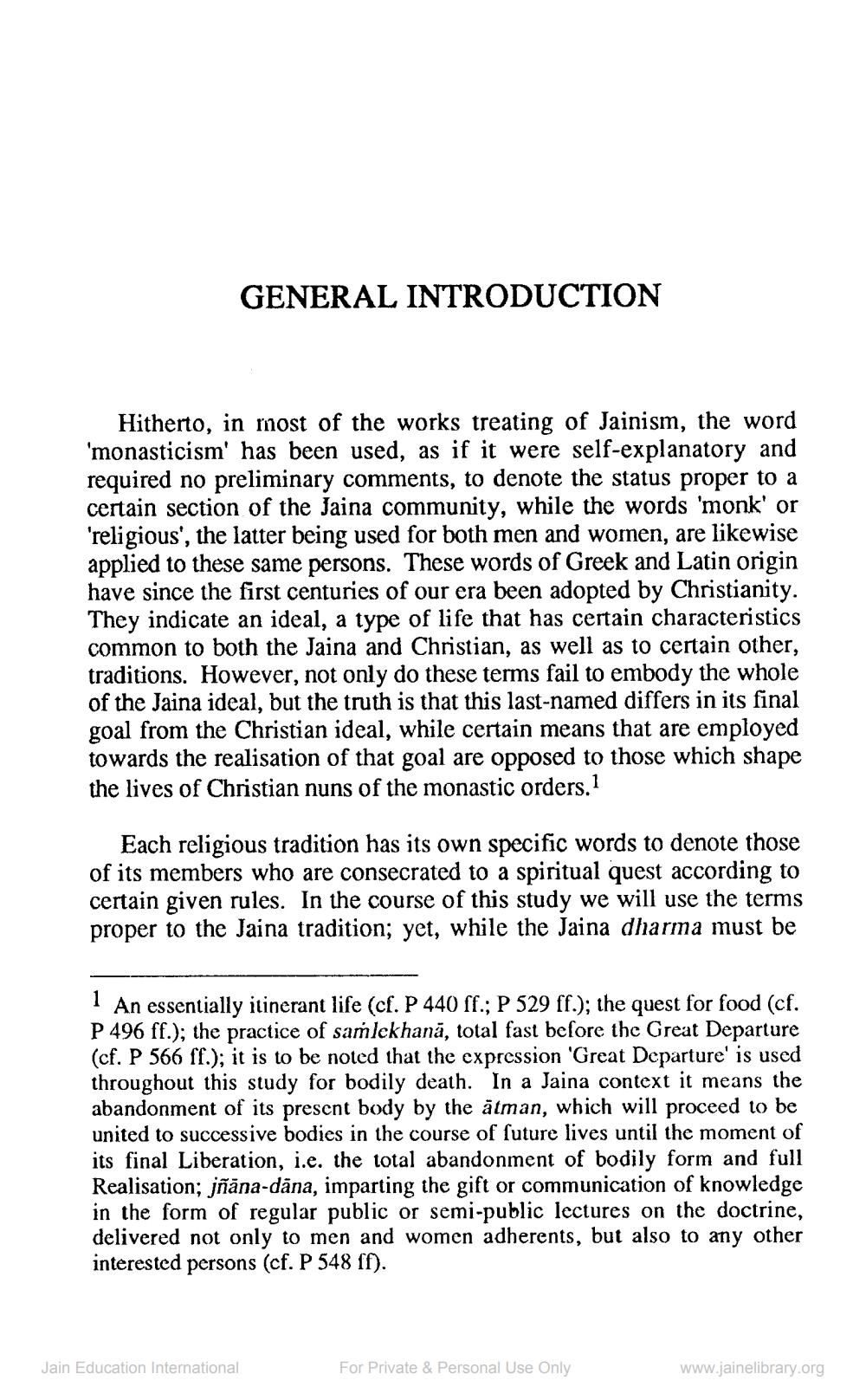________________
GENERAL INTRODUCTION
Hitherto, in most of the works treating of Jainism, the word 'monasticism' has been used, as if it were self-explanatory and required no preliminary comments, to denote the status proper to a certain section of the Jaina community, while the words 'monk' or 'religious', the latter being used for both men and women, are likewise applied to these same persons. These words of Greek and Latin origin have since the first centuries of our era been adopted by Christianity. They indicate an ideal, a type of life that has certain characteristics common to both the Jaina and Christian, as well as to certain other, traditions. However, not only do these terms fail to embody the whole of the Jaina ideal, but the truth is that this last-named differs in its final goal from the Christian ideal, while certain means that are employed towards the realisation of that goal are opposed to those which shape the lives of Christian nuns of the monastic orders.
Each religious tradition has its own specific words to denote those of its members who are consecrated to a spiritual quest according to certain given rules. In the course of this study we will use the terms proper to the Jaina tradition; yet, while the Jaina dharma must be
1 An essentially itinerant life (cf. P 440 ff.; P 529 ff.); the quest for food (cf. P 496 ff.); the practice of saṁlekhana, total fast before the Great Departure (cf. P 566 ff.); it is to be noted that the expression 'Great Departure' is used throughout this study for bodily death. In a Jaina context it means the abandonment of its present body by the atman, which will proceed to be united to successive bodies in the course of future lives until the moment of its final Liberation, i.e. the total abandonment of bodily form and full Realisation; jñāna-dāna, imparting the gift or communication of knowledge in the form of regular public or semi-public lectures on the doctrine, delivered not only to men and women adherents, but also to any other interested persons (cf. P 548 ff).
Jain Education International
For Private & Personal Use Only
www.jainelibrary.org




